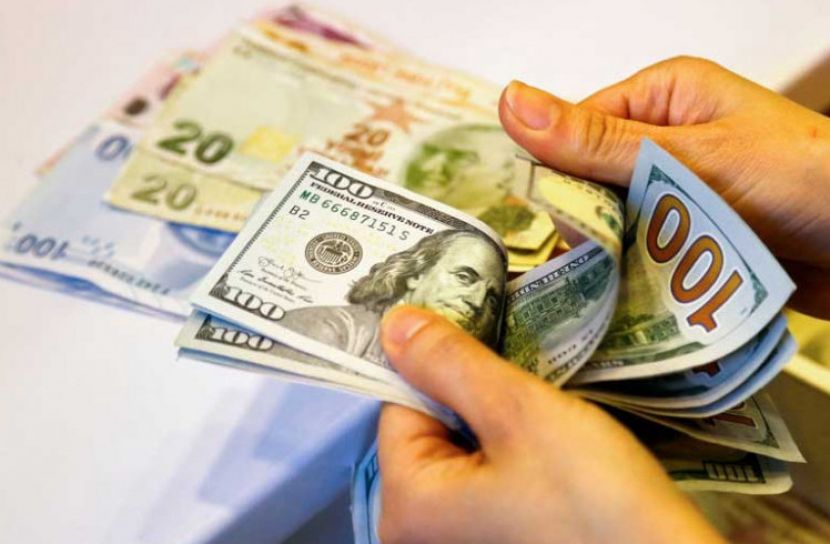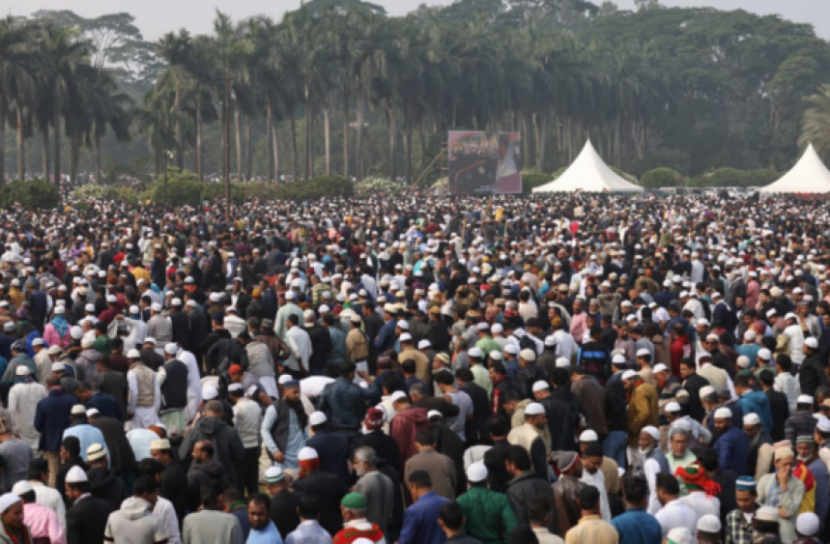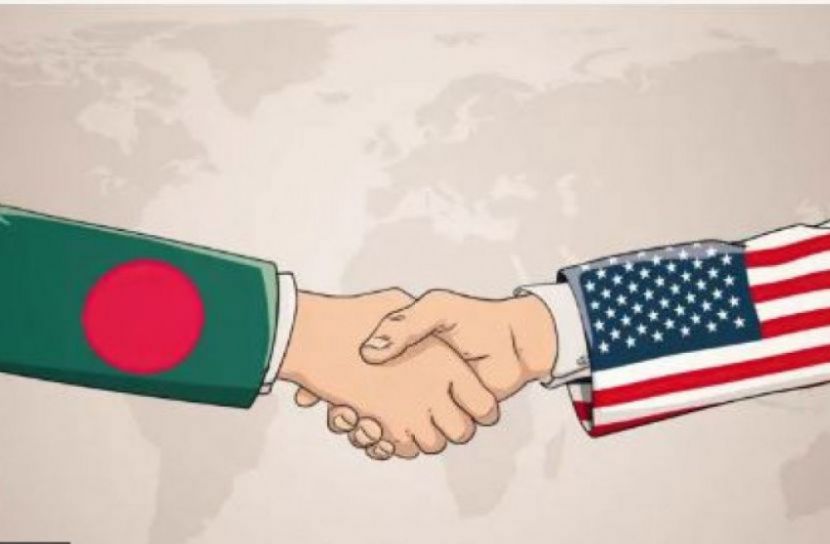
Inward remittance of the country shrinks by 23%

Further clash between Dhaka and Ideal college

One dies while attending Janaza!

Bangladesh will not join ICC T20 World Cup in India

Shrabasti Chakma: With Donald Trump getting ready to get back to the White House in January 2025, concerns emerge regarding how his administration could influence foreign relations with countries like Bangladesh. Although the United States has not typically focused on the South Asian country in its foreign policy, its geographic position and expanding economy are making it more important in global geopolitics, which could present both advantages and difficulties. During his presidency from 2017 to 2021, Trump's foreign policy emphasized the importance of "America First," giving priority to trade agreements, one-on-one interactions, and addressing growing Chinese influence throughout the globe. Even though Bangladesh was not a significant factor in this regard, its significance in the Indo-Pacific area and its growing economy were still acknowledged. There is a lot of talk about how Trump could change his approach toward the South Asian nation.
Bangladesh has become a significant player in the textile and garment industry on a global scale, especially in the context of international trade. Bangladesh's exports exceed $10 billion annually. A second term for Trump could present both obstacles and advantages for Bangladesh, a major exporter of textiles and garments, in their trade relations. Throughout Trump's initial four years in office (2017–2021), his administration placed a strong emphasis on decreasing trade imbalances and reworking trade deals that were viewed as detrimental to U.S. interests. Although Bangladesh's trade surplus was not the main focus of his trade agenda, its export-driven economy may come under increased scrutiny if Trump decides to bring back his tough stance on trade imbalances and protectionist measures. Once more, experts advise that tariffs on products from Bangladesh, like clothing, may rise in the U.S. during Trump's presidency to boost local production. Trump's inclination towards bilateral trade agreements instead of multilateral structures might change the dynamics in the relationship between the United States and Bangladesh. Despite the absence of a free trade agreement (FTA) between Bangladesh and the U.S. at present, Trump's focus on one-on-one discussions could lead to a custom trade arrangement that is probably skewed in favor of U.S. interests. Agreements could involve requiring Bangladesh to enhance labor protections in its garment industry and enhance compliance with intellectual property and copyright standards.
The strategic position of Bangladesh in the Bay of Bengal makes it an important player in the Indo-Pacific region, where the U.S. is now placing more attention on pushing back against China's expanding power. During Trump's former presidency, the Indo-Pacific Strategy focused on building relationships with countries in the region to limit the impact of China's Belt and Road Initiative (BRI). Trump's comeback could result in heightened U.S. diplomatic and economic efforts to counter the growing influence of China, as Bangladesh continues to receive substantial Chinese investments in infrastructure. A Trump government could push Dhaka to cooperate more with the U.S., possibly providing financial benefits or security partnership to balance out Chinese investments. Nevertheless, this might create a predicament for Bangladesh, as it depends on China for development initiatives while also nurturing strong relationships with other major countries like India and Japan.
Although Trump usually did not focus on human rights and labor conditions in his foreign policy, the labor practices in Bangladesh's garment industry have frequently been a topic of disagreement. Advocacy organizations in the United States have consistently urged for more stringent enforcement of labor rights in Bangladesh, especially following the 2013 Rana Plaza tragedy. A Trump administration could utilize these topics as bargaining tools in trade negotiations, but would probably not prioritize them in the relationship, considering Trump's business-like approach to diplomacy. In terms of humanitarian issues, Bangladesh's continuous work to accommodate close to one million Rohingya refugees from Myanmar may not receive much focus from a White House led by Trump. Although the Trump administration did offer assistance for the refugee crisis, their main priority was decreasing America's support for global entities.
For Bangladesh, navigating a Trump presidency would require careful diplomacy. As it seeks to maintain its non-aligned foreign policy stance, balancing relationships with the U.S., China, and other global powers will be critical. A second Trump term could present opportunities for Bangladesh to deepen economic and security ties with the U.S., but these would likely come with conditions that challenge its autonomy in foreign policy and economic decision-making. In conclusion, Trump’s potential foreign policy toward Bangladesh would reflect his broader themes of transactional diplomacy and strategic competition with China. While this could bring new avenues for cooperation, particularly in trade and security, Bangladesh would need to tread cautiously to protect its national interests in an increasingly polarized global landscape.
Writer: Student of International Relations, Jahangirnagar University, Dhaka
Newsletter
Subscribe to our newsletter and stay updated.


